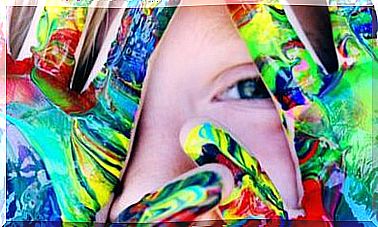Why Bacteria Are Friends Of The Earth And Your Health
Although you can’t detect it with the naked eye, tiny bacteria are great, they are friends of the earth and your health.

The smell of wet earth is pleasant . Moisture makes bacteria proliferate that give it fertility and that characteristic smell that denotes for us the affinity and goodness of said bacteria.
The land tilled with the right temperature is also pleasant: the bacteria are happy because they feed on and capture nitrogen from the air, and we are happy to know that we are in front of a fertile land.
What role do bacteria have in nature?
Its functions in nature are endless: they purify water, degrade toxic substances and recycle waste products, replenish carbon dioxide and make nitrogen in the atmosphere available to plants.
Bacteria in the soil not only create fertility, they are the basis of life.
Do we have bacteria inside the body?
Bacteria circulate through our skin, our intestines and lodge in multiple places in the body, creating an ecological balance on which health largely depends: they are ten times more abundant than cells.
Our adaptation to the environment and to environmental microbes begins at conception. Viral particles are responsible for placentation and maternal immunosuppression during pregnancy.
Between 90,000 and 300,000 sequences derived from viruses have been identified in the human genome .
And at birth, a new wave of bacteria breaks out, transmitted by hugs, kisses, caresses and the mother’s breast, which become part of our flora and balance.
Why are bacteria necessary?
The discoveries of Pasteur or Koch were a great step for medicine, but they have left us demonic images of the bacterial world in literature, the press and television, where bacteria and viruses are presented as the “bad guys”.
But the balance is also the work of the good bacteria: they generate and produce antibiotics and antiseptics that control pathogenic bacteria naturally.
Many antibiotics used in medicine are obtained from bacteria in the ground (terramycin or chloramphenicol), fungi (penicillin) or algae (cephalosporin).
It is necessary to change the mentality. Life on Earth is basically microbial, and health relies on a delicate interaction with many environmental microbes.
Bacteria work in the soil, soil, water, fertility and fermentation, in cheeses, olives, breads, yogurts … They intervene and are part of our diet.
Through the intestine we receive, transport and spread huge amounts of bacteria and viruses that help our environmental integration and maintain health.
We receive bacteria that protect us and we distribute bacteria that fertilize the soil and improve plant nutrition.
Are there good bacteria?
It is important to be aware that there is a positive microbiology, much more numerous than the pathological one and of which very little has been written compared to the great literature that the few bacteria that ever harm us have.
We must begin to think of bacteria and viruses as great allies to balance and improve health.









